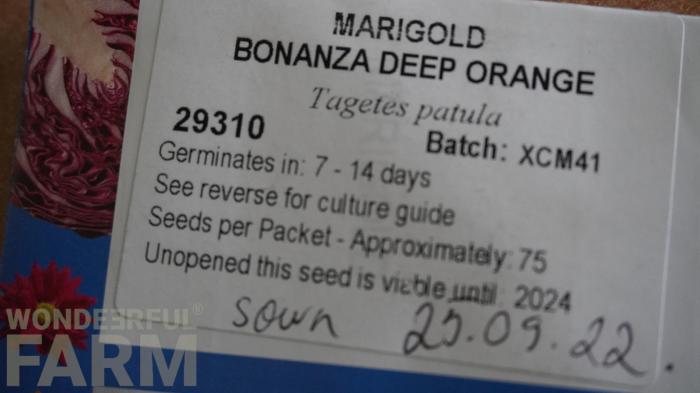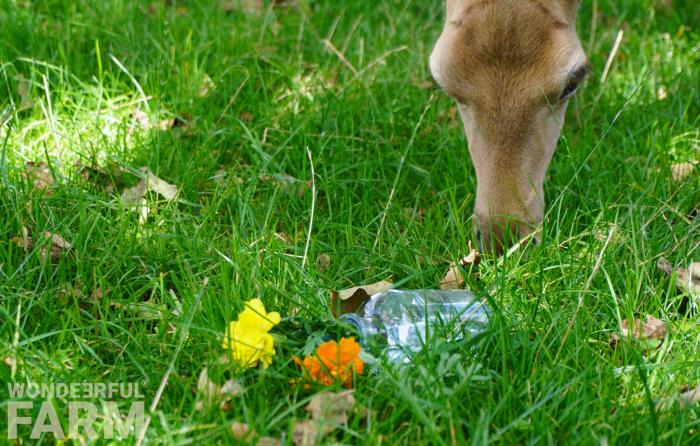Are French Marigolds Deer Resistant?
» Deer stories » Deer resistant plants » Are French Marigolds Deer Resistant?Plant type: annuals
Deer resistant: somewhat
Our plant hardiness zone:
New Zealand: subtropical
U.S. Zone 10b
- Introduction
- Deer and French Marigolds: Local Experiment
- Are French Marigolds Deer Resistant??
- Marigolds to Repel Deer?
- Other Deer-Resistant Plants
- Conclusion
The marigold is a vibrant, cheerful flower that adds a splash of color to any garden or outdoor space. The plant has been valued for its beauty and medicinal properties for centuries, and is a popular choice for gardeners around the world.
We mainly plant marigolds because they can help our crops. They act as a natural pesticide, improving the condition of the soil. Marigolds also attract beneficial insects, such as bees and other pollinators.
We are currently growing French marigolds (Tagetes patula).

French marigolds reportedly have been proven to be the most effective for pest control, specifically against soil nematodes. For whiteflies - no effect, we’ve had both tomato plants infested while a dozen of plants were growing right underneath them. But after dealing to those (again, and again), our tomatoes have been doing well and have reached close to 2 meters high, currently loaded with ripening fruits.
Deer And Marigolds: Can They Co-exist?
There are many conflicting reports on the net about whether deer eat marigolds. Some claim that tagetes are so hated by the deer that they possess repelling qualities, and if you plant enough marigolds deer won’t step foot into your garden. Others are warning that deer are attracted to marigolds and offer tips on how to protect them.
Where’s the truth? Let’s ask our own, local deer, whether they like our own, locally grown French marigolds.
The location where we've planted marigolds is out of reach for our deer (otherwise nearby tomato plants would stand no chance), so we had to deliver a few freshly cut marigolds in a bottle to our animals. Watch.
In our experience, this means deer are not crazy about this plant. They may nibble a bit for the hell of it, when there’s nothing better or they’re bored. But they’re not strongly attracted to it in particular.
Are French Marigolds Deer Resistant?
Would we feel safe planting a bunch of French marigolds where deer are often present? Well… maybe… Seeing how they’re very easy to care for and will often thrive with minimal attention. But we’d also expect deer to steal a few flowers now and again. It's a bit of a lottery.
There are other varieties of marigolds, besides French and African marigolds (Tagetes patula and Tagetes erecta), which are widely considered deer resistant for posessing a strong scent and bitter flavor. But one variety, the signet marigold (Tagetes tenuifolia), apparently stands out, having a sweeter citrus scent and flavor. As we've covered before, deer eat citrus fruits. So no wonder signet marigold should be least deer resistant of them all.
Certainly if the marigolds are the only thing you’re growing in your garden, we’d speculate deer wouldn’t cross oceans or climb mountains to get to your ‘buffet’.
Can Marigolds Help To Repel Deer?
Theoretically, if there’s many-many fragrant marigolds in your backyard, and they’re able to cloak the scents of other plants that deer might enjoy, plus somewhere around the corner - there’s a fruit garden - a more inviting site, it could work. It would depend on many factors, for example, how hungry are the deer in your area, if there was a dry season that left deer with few options, how the wind is blowing etc.
So again, it's a long shot, but if you wanted to grow marigolds to repel deer, you would need to plant a lot of them. In order to overpower any appealing fragrances, there would have to be a ton of marigolds and/or other plants deer consider rather repugnant. Think lavender, rosemary, mint, basil and geraniums.
As we’ve mentioned many times on this website, fencing is the only surefire way to protect your plants from deer.
But barring that option, sowing some deer resistant plants may be the next best thing. Just prepare yourself that there could be disappointments, because deer are generally not picky eaters and hungry deer eat anything. Read our post how to keep deer out of your garden!
What Are Some Other Deer Resistant Plant Options?
If you're wondering, what plants do deer hate the most, you're not alone. Plants with strong scents or textures that deer find unpalatable are often the most effective at deterring them, as well as those with toxic components. Examples include nasturtiums, calla lillies, mint, hyacinth, freesias and ornamental grasses. Always good to note that there is probably no such thing as a completely deer-proof plant, and some deer may still choose to eat plants that are known to be less attractive to them, indcluding marigolds, obviously.
In conclusion, the relationship between marigold plants and deer remains somewhat enigmatic. While French marigolds, known for their pest control qualities, may deter deer to some extent, the evidence suggests that deer are not entirely repelled by them. Our local experiment showcased a mixed response from deer when presented with marigolds, indicating that these flowers might not be the ultimate deterrent against deer intrusion. They might not be the best deer attractant - that much is certain.
Considering the broader context, there are indeed other varieties of marigolds and various deer-resistant plants that may offer better protection for your garden. Still, it pays to remember that deer are adaptable creatures, and their eating habits can vary based on factors like local food availability and hunger levels.
Ultimately, while marigolds can play a role in your garden's defense against deer, relying solely on them may not be foolproof. For more comprehensive protection, exploring alternative measures like fencing and planting a variety of deer-resistant plants is advisable.
🦌 Update 06 October 2023.
Been feeling a bit lucky, leaving two pots on the steps with 1 flower in each of them. Next day one of the deer (it was probably Junkie!) hoovered one up. But the other one was spared. So they may not be top choice, but French marigolds do get eaten by deer.
Last modified 06 October 2023 at 21:31
Published 08 February 2023
Add your comment
Plants alphabetically
More «Deer resistant plants» stories
How to Keep Deer Out of Garden (With & Without a Fence, Good & Bad Ideas)
Deer farmers tips for keeping deer out of your garden, what to do without a fence. Several tactics for driving deer away from your yard & how to keep deer out of garden at night.
read more...
Do Deer Like Agapanthus? African Lily Deer-resistance.
Do deer eat agapanthus plants? What's more deer resistant: Lilly of the Nile or Ornamental Onion? Similiarities and differences between the two perennials. Recommendations to gardeners struggling with deer damage.
read more...
Purple toadflax (Linaria purpurea) a deer proof plant?
For some inexplicable reason, deer just can't seem to get on board with purple toadflax, so if you're tired of deer munching on your garden plants, purple toadflax might just be the solution you've been looking for.
read more...
 '
'





